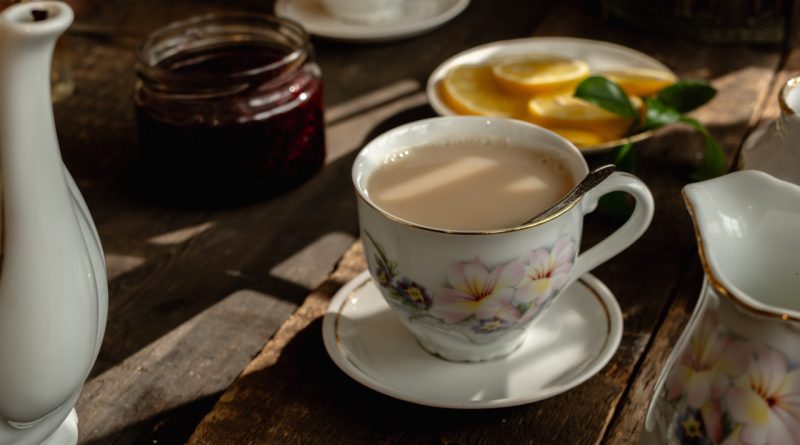The Psychology Of Tea Flavor Preferences In Adagio’s Customers
The world of tea is a rich tapestry of flavors, aromas, and cultural significance. At Adagio Teas, a brand known for its diverse selection, understanding the psychology behind customer flavor preferences can reveal much about individual choices and experiences. By exploring flavor profiles, the role of aroma, and emotional connections to tea, we can gain insights into why certain teas appeal to specific customers. This article delves into the intricate relationship between flavor preferences and the psychological factors that shape them.
Understanding Flavor Profiles: What Drives Tea Choices?
Flavor preferences in tea can often be categorized into distinct profiles: floral, fruity, earthy, and spicy, among others. Customers at Adagio Teas may gravitate toward particular flavors based on their taste experiences and cultural backgrounds. Research indicates that flavor preferences are not just about individual taste; they are also shaped by environmental factors, personal history, and even social influences. For instance, a customer who grew up enjoying chamomile tea may have a strong preference for floral notes in their tea selections.
Moreover, the concept of flavor synergy plays a crucial role in tea choices. Certain flavors can enhance each other, creating a more complex and enjoyable experience. Adagio’s diverse range allows customers to experiment with blends that combine different flavor profiles. This exploration can lead to a deeper appreciation for the subtleties in tea, fostering a sense of adventure and curiosity that drives repeat purchases.
Finally, the perception of flavor is often tied to individual health beliefs and lifestyle choices. For example, customers who prioritize wellness may lean toward herbal teas known for their health benefits. By understanding these underlying motivations, Adagio can better align its offerings with customer preferences, creating a more personalized shopping experience.
The Role of Aroma and Taste in Tea Selection
Aroma plays an essential role in the overall tea experience, often influencing taste perceptions. Scientific studies have shown that smelling a tea can significantly enhance the flavor experience, creating a more holistic enjoyment. Customers at Adagio may choose their teas based on the aroma alone, as the scent can evoke memories and anticipations about the flavor profile. This phenomenon underscores the interconnectedness of smell and taste, making aroma a vital factor in tea selection.
The olfactory system is intricately linked to the brain’s emotional centers, meaning that the smell of a particular tea can trigger emotional responses. For instance, a customer might find comfort in the warm, earthy aroma of a chai tea, connecting it to memories of family gatherings or festive occasions. Adagio’s careful curation of tea blends considers these olfactory cues, enhancing the overall customer experience and fostering brand loyalty.
Furthermore, flavor and aroma preferences can vary widely among different demographics. For example, younger customers may prefer bolder, fruit-infused teas, while older generations might gravitate toward traditional black or green teas. By segmenting its offerings and marketing strategies based on these preferences, Adagio can create targeted campaigns that resonate with specific customer groups, leading to increased engagement and satisfaction.
Emotional Connections: Tea Flavors and Customer Memories
The emotional connections that customers have with certain tea flavors can significantly influence their purchasing decisions. Many individuals associate specific teas with moments of relaxation, celebration, or even nostalgia. For instance, a customer might prefer Earl Grey because it reminds them of afternoon teas spent with friends. This emotional resonance can lead to brand loyalty, as customers often seek out teas that make them feel a certain way.
Furthermore, the ritual of preparing and enjoying tea can evoke a sense of mindfulness and calmness, which is particularly appealing in today’s fast-paced world. Adagio’s customers may choose soothing herbal blends to unwind after a stressful day, thereby creating a deeper emotional connection with those flavors. Understanding these psychological associations allows Adagio to market their products in ways that highlight the emotional benefits of their teas.
Additionally, tea can serve as a cultural touchstone, connecting individuals to their heritage or community. For instance, a customer might choose a specific green tea because it reflects their cultural background or family traditions. By recognizing and celebrating these connections, Adagio can foster a sense of community among its customers, enhancing their overall experience with the brand.
Tips for Tailoring Tea Experiences Based on Preferences
To create a more personalized tea experience, Adagio can implement targeted recommendations based on customer preferences. Utilizing data analytics, the company can track purchasing habits and suggest new flavors that align with individual tastes. For example, if a customer frequently buys fruity teas, they might appreciate recommendations for limited-edition blends that feature seasonal fruits.
Moreover, engaging customers through interactive experiences, such as tea tastings or workshops, can help them explore different flavor profiles. These events can encourage customers to step outside their comfort zones, discovering new favorites and deepening their appreciation for tea. By fostering a community atmosphere, Adagio can enhance customer loyalty and satisfaction.
Lastly, educational content about the origins and health benefits of various teas can empower customers to make informed choices. Providing insights into how different flavors can impact mood or energy levels can help customers select teas that best suit their needs. By prioritizing education alongside personalization, Adagio can create a comprehensive and enriching experience for every customer.
Understanding the psychology behind tea flavor preferences can provide valuable insights for both consumers and brands like Adagio Teas. By considering factors such as flavor profiles, the role of aroma, and emotional connections, companies can tailor their offerings to meet the diverse needs of their customers. Moreover, by fostering a sense of community and providing educational resources, brands can enhance customer loyalty and create a more fulfilling tea experience. As tea continues to evolve, the interplay between psychology and flavor will remain a vital area of exploration for both enthusiasts and industry leaders alike.
